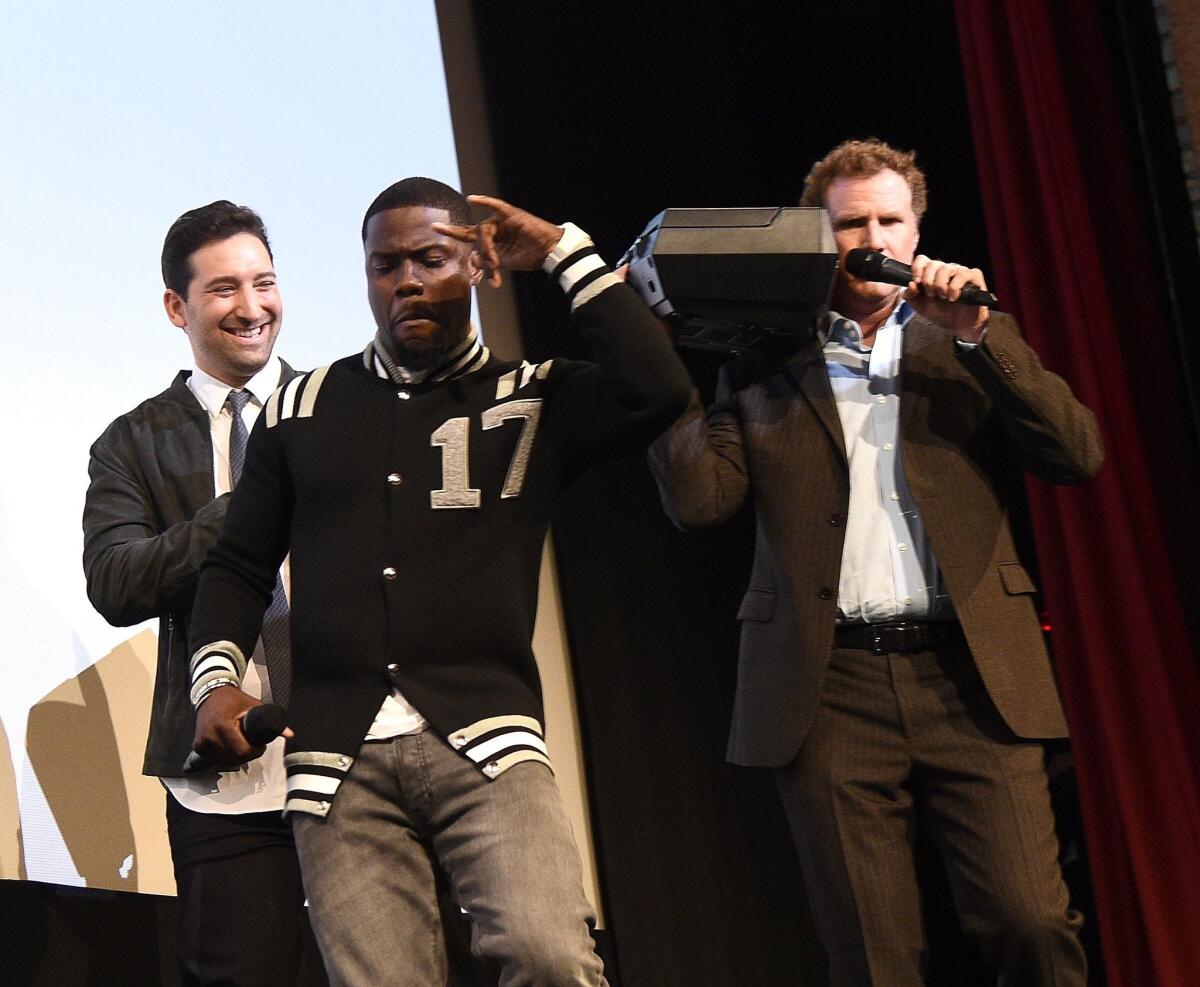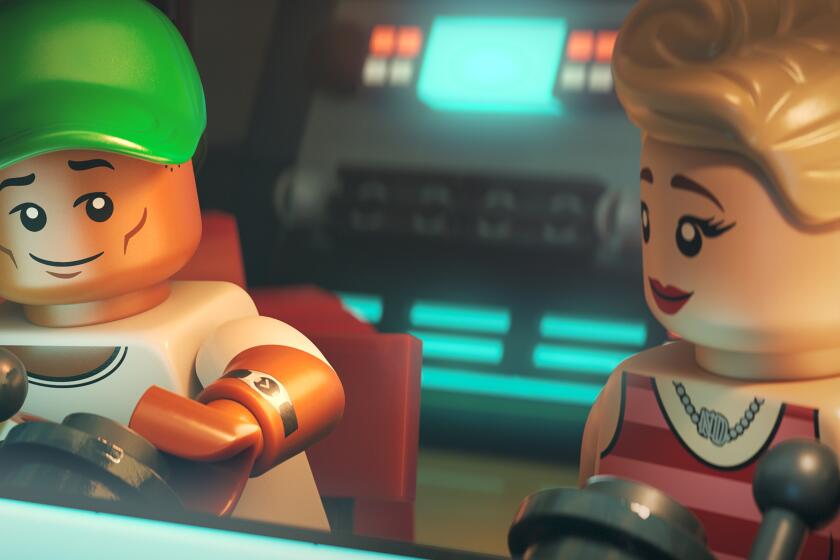SXSW: Will Ferrell-Kevin Hart comedy ‘Get Hard’ divides fest audience

Reporting from Austin, Texas — It started so well.
Before the Will Ferrell-Kevin Hart comedy “Get Hard” was unveiled at SXSW Monday night, the crowd inside the Paramount Theater was in good spirits. Ferrell -- taking on the attributes of the stiff hedge-funder he plays in the film -- walked on stage with an old-school boombox on his shoulder. Hart began dancing to the hip-hop music and revving up the audience, telling them how excited he was to be premiering the movie at SXSW. He urged everyone to “jump on Twitter” and spread the word about the film after it was done.
“And if you don’t like it,” he added, “what I want you to do is go out in the middle of the street and kill yourself.”
“I’m not as heavily involved in social media,” Ferrell chimed in. “So send me handwritten notes. Hopefully on nice stationary.”
Moviegoers stood up and cheered. Everyone was laughing. And then things got awkward.
Well, first the movie played. “Get Hard,” the March 27 directorial debut of screenwriter Etan Cohen (“Tropic Thunder”), stars Ferrell as James King, a highly uptight man sentenced to a long term in prison for an assortment of financial crimes. King has some rather deluded ideas about race and wrongfully assumes that Hart’s Darnell, who washes his expensive car, has been behind bars. He asks Darnell for help getting him ready for prison.
An assortment of comic set pieces follows, many of the very edgy variety. (The film was initially given an NC-17 rating before being trimmed to an R.) Part of the training includes preparing Ferrell for the possibility of prison rape, and Darnell takes James to a gay bar with the goal of having him practice oral sex on a stranger -- a prospect that James finds so disgusting that he runs out of a bathroom stall after a graphic failed attempt.
Darnell also tries to make James comfortable with people from all backgrounds, having him hang out with both a gang from Crenshaw and a white supremacist group. He also forces James to say the N-word.
The film evoked a lot of laughter during the screening, but a Q&A with Cohen following the screening turned awkward when an audience member said he found the movie offensive.
“This film seemed racist as ...,” said one questioner, using an expletive.
“That’s not a question,” Cohen replied.
“I’m not done,” the filmgoer said.
“Soon you will be,” Cohen retorted.
“Were you nervous -- and/or how nervous were you -- presenting this in front of a live audience being completely, absolutely and unapologetically ... racist and hysterical at the same time?” the questioner finished.
Seeming flustered, Cohen admitted the film’s tone had been “a really hard delicate balance to find.”
“When we were testing this movie, Ferguson was going on,” the director said. “So it was a really hard thing to modulate because we wanted to make a real statement about this stuff. We wanted to see just how far we could push it where we could be provocative and people would actually think about this stuff and think about the stereotypes, but not go too far where comedy doesn’t deserve to go.”
Q&As can often be uncomfortable affairs, particularly when audience questions are involved. But this one was especially bad. Because Ferrell and Hart had come on stage before the movie began, the crowd was also expecting the stars to return post-screening. One person in line to ask a question noted she “actually had a question for Will.”
“I’m sorry to be me,” Cohen replied apologetically.
Once the audience realized the actors would not be participating in the Q&A, dozens started walking out as Cohen was in the middle of answering questions. Those who remained pushed him further on the race issue, with one woman asking whether or not Cohen was worried the movie “would be reinforcing racial stereotypes.”
“When you do satire, that’s a big problem,” he acknowledged. “Because it’s sometimes hard to distinguish between satire and what you’re satirizing. So that’s a dangerous thing.”
Follow @AmyKinLA for more news from SXSW
We’re at South by Southwest until Sunday. Join us at latimes.com/sxsw for ongoing coverage of the festival.
More to Read
Only good movies
Get the Indie Focus newsletter, Mark Olsen's weekly guide to the world of cinema.
You may occasionally receive promotional content from the Los Angeles Times.










